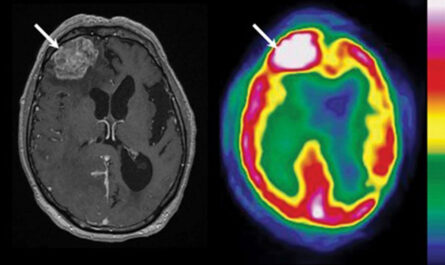A groundbreaking breakthrough in genome editing technology has been achieved by a team of researchers at the Carl Gustav Carus Faculty of Medicine, University of Technology Dresden. Led by Prof. Frank Buchholz, the team has developed a cutting-edge method that combines designer-recombinases with programmable DNA-binding domains to create precise and adaptable genome editing tools.
In a recent publication in Nature Biotechnology, the team explains how traditional genome editing faced limitations in achieving ultimate precision. However, Prof. Buchholz’s team has managed to overcome these limitations by creating a zinc-finger conditioned recombinase. This innovative approach involves integrating a zinc-finger DNA-binding domain into specially designed recombinases. These enzymes remain inactive until the DNA-binding domain engages with its target site, adjacent to the recombinase binding area.
The significance of this achievement lies in the fusion of two key strengths—the targeting ease of programmable nucleases and the precise DNA editing capabilities of recombinases. This breakthrough overcomes existing limitations in genome editing techniques and holds immense promise for therapeutic gene editing and various biomedical applications.
Prof. Buchholz explains the importance of this development, stating, “This breakthrough represents a harmonization of existing genome editing tools, allowing us to create precision enzymes independent of natural DNA repair mechanisms. This marks a significant step towards a safer and more adaptable approach of correcting disease-causing genetic mutations, offering immense benefits for numerous patients.”
This pioneering work in genome surgery promises a safer and more precise approach to treating genetic disorders. The implications of this development are far-reaching and have the potential to transform the landscape of medicine.
Professor Esther Troost, the Dean of the Faculty of Medicine at TU Dresden, commends the team’s achievement, stating, “The Faculty of Medicine at TU Dresden is setting new standards for innovative medicine with groundbreaking genome editing tools. Under the leadership of Prof. Frank Buchholz, the research team is breaking traditional boundaries and paving the way for specialized gene therapy applications.”
Building upon these advancements, Seamless Therapeutics GmbH, a biotechnology company founded out of the Buchholz lab, will be advancing the innovative findings to therapeutic application. The company has signed an exclusive licensing agreement with TU Dresden for this novel technology, allowing Seamless to further expand their recombinase platform. This technology has the potential to change the paradigm of gene editing and develop a pipeline of disease-modifying product candidates across a broad spectrum of indications.
With this breakthrough in genome editing technology, precision medicine takes a significant step forward. The development of more precise and adaptable genome editing tools opens up new possibilities for targeted gene therapies and personalized medicine. As research continues in this field, the potential for precise genetic corrections and tailored treatments brings hope to patients and transforms the outlook for numerous diseases.
*Note:
1. Source: Coherent Market Insights, Public sources, Desk research
2. We have leveraged AI tools to mine information and compile it




